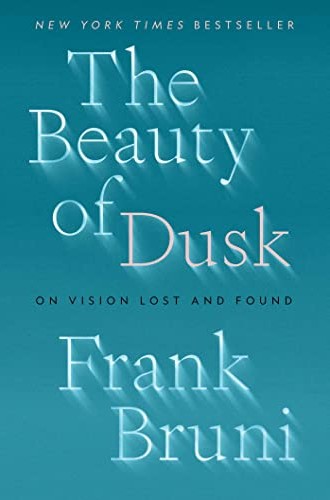How do we cope with intractable loss?
When Frank Bruni suffered permanent vision damage, he embarked on a philosophical quest.
Novels, it is said, can help their readers develop empathy. The Beauty of Dusk, which begins with the moment Frank Bruni’s life was irreversibly transformed, ranks with the best empathy-building novels. It is not, however, fiction. Although billed as a memoir, it transcends that category. Important sections read like newspaper feature stories—not surprising from an author who has been a New York Times restaurant critic, Rome bureau chief, White House correspondent, and op-ed contributor. Other parts tread the line between philosophy and self-help. Seen as a whole, Bruni’s exploration of pain and loss could be called wisdom literature.
Bruni’s loss struck with no warning. When he went to bed one Friday night in 2017, he felt fine. When he woke up the next morning, his left eye was out of focus, as if smeared with grease. He figured his vision would clear up once he was fully awake, but it didn’t. In fact, it got worse as the day went on. Before long the central vision in that eye was nearly gone.
Bruni needed sharp eyesight. His career involved close observation, careful reading, and long hours of screen time, while his favorite leisure pursuits included watching movies and exploring unfamiliar places. By Sunday afternoon, he was worried enough to text his ophthalmologist’s personal cell phone.





